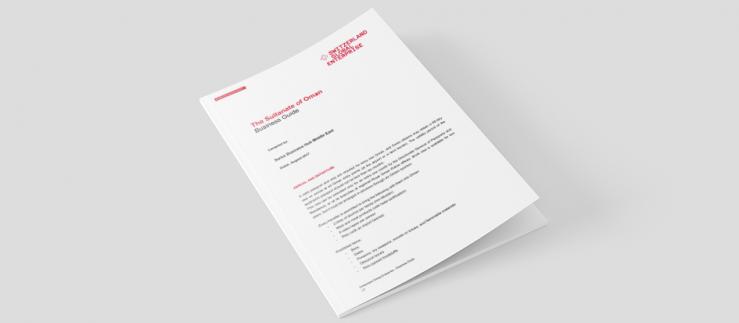Making a donation to speed up a process, demanding a sum of money to influence public procurement, accepting a vacation trip declared as a business trip, creating a falsified invoice – all of these practices have one thing in common: anyone caught up in them is involved in corruption.
Corruption is the abuse of a power or trust relationship to gain a wrongful advantage. Corruption is also when someone creates or offers a wrongful advantage. Corruption exists around the world, albeit to varying degrees. Swiss companies operating abroad are therefore exposed to a risk of corruption.
SMEs are particularly affected
According to a study by HTW Chur, SMEs are particularly affected: in contrast to larger companies, they tend to be under more pressure in international markets. It is not uncommon for SMEs to greatly depend on winning a specific tender or obtaining market approval, or whether a product can be marketed in a timely manner. It is under these circumstances that SMEs may find themselves in situations that are legally deemed as corruption.
In order to prevent this from happening, the State Secretariat for Economic Affairs SECO, in cooperation with various authorities and organizations, has put together a brochure about the problem of corruption in international business transactions. The brochure illustrates what companies can do to prevent corruption. It focuses on the following three measures:
Measure 1: Get informed
Every anti-corruption strategy should start with getting the right information. Businesses should understand what corruption is, where and in what ways it occurs, what the risks are and what can be done about them. The new SECO brochure offers a good basis for this.
In addition, SMEs should get an idea of the local conditions in the target market and the rules that govern their business there. Switzerland Global Enterprise supports SMEs in this process with targeted market information and country-specific export consultations.
Measure 2: Take appropriate measures
The avoidance of corruption cases begins at the highest management level of a company. Executive management must clearly and unambiguously position itself against any corrupt behavior and establish credibility for this cause. It is only when this basic requirement is fulfilled that effective arrangements can be made at operational level.
The scope and form of these arrangements depend on how big a company is, how it is structured and in which countries and sectors it operates. At the organizational level, for example, more transparent business processes can be ensured by recording and archiving processes. Operational measures can also reduce the risk of corruption: these include the introduction of a specification, the establishment of the four-eyes principle or the inclusion of integrity clauses in employment contracts.
At the personnel level, it is advisable to sensitize and train particularly exposed employees to the problem of corruption. It is also advisable to establish a point of contact where employees can express suspicion of corruption without fear of being disadvantaged.
Measure 3: Create a code of conduct against corruption
A code of conduct against corruption has various advantages: By committing itself to integrity, a company is taking a clear stand against corruption. This creates trust among business partners, customers and the public. The code of conduct also raises employee awareness of the issue of corruption while providing guidance on how to spot and combat corruption in a timely manner.
Do you want to learn more about corruption in international business transactions?
In SECO's new brochure (PDF version below), you will find out in more detail which tools can help SMEs avoid and actively combat corrupt behavior. You can also familiarize yourself with the applicable provisions of Swiss criminal law and use case studies to test your understanding of the problem.







